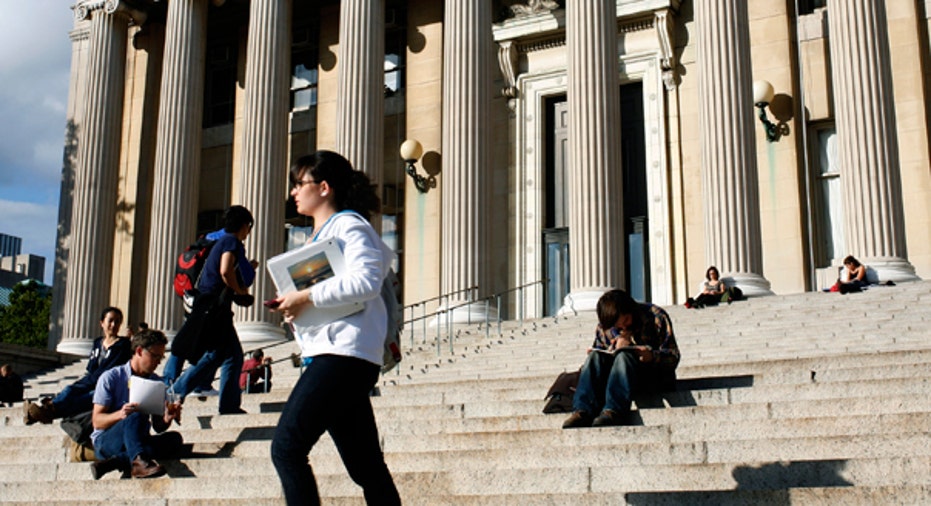The Freshman $1000: How to Help College Student with Credit Card Debt

Instead of gaining the infamous freshman 15 of extra pounds, your student has fallen prey to the Freshman $1000 by quickly running up credit card charges soon after arriving on campus. But unlike other mistakes that your student is bound to make, getting into debt and missing payments can affect his future for years to come. And because of the Credit CARD Act of 2009, unless your student has significant income, you most likely are a co-signer on your college student's credit card and their debt can directly impact your credit as well.
"Unfortunately, financial disasters are not like broken bones that can quickly heal. Credit mistakes that young people make have a way of hanging out for a very long time and on-the-job training in the world of credit debt can be very painful," says John Ulzheimer, President of Consumer Education for SmartCredit.com.
Once you realize that your college student may be getting into credit card debt or affecting her credit score with missed payments, here are three steps you can take to get your student on the right track.
1. Have an honest conversation with your student
If at all possible, sit down with your student in person, but the phone or video chat will work as well. Approach the conversation non-judgmentally with the goal of helping your child and try to leave your frustration with the situation at the door.
It may be helpful to open the conversation by sharing about a time when you made a poor financial decision so that your college student realizes that you have been in her shoes before. Ask your child to tell you how she got into debt and actively listen to her response. Look together at the credit card bills to get a clear picture of where she is currently is and what decisions helped create the credit card debt.
2. Help your student make a plan for paying off the debt
One solution is for your college student to earn extra money working part-time to pay off the debt and map out a payment plan to get the bills paid off as quickly as possible. However, if your student is taking a full load of classes, this may take many years or cause their schoolwork to suffer because of working long hours on the job. And if they miss a payment, it can significantly impact your credit and you are a cosigner, as well.
Because of these limitations, Ulzheimer recommends that the parent to pay off the debt and then have the student pay back the parent either the whole amount or a portion of the debt with interest added. "The payback process isn't really as much about the money as about the effort and learning that you have to work to pay off your debts," says Ulzheimer.
3. Brainstorm ways for future responsible credit management
Talk with your student about the long term effects of poor credit decisions. Discuss how giving into the temptation for the latest gadgets or fashions can affect their ability down the road to buy a car, take out a mortgage or even land a job that requires a credit check.
Brainstorm together about ways to avoid this situation in the future and how she can use credit responsibly in the future. If your student currently has her own credit card, Ulzheimer recommends closing the account and adding her to one of your credit cards as an authorized user to give you more control and monitoring ability. If this is not option, other strategies include lowering the college student's credit limit to $300 or $500 and having the bills sent to your address to help give your student some accountability.
"Your main goal should be to help teach your child how to use credit cards responsibly at an early age." says Ulzheimer. There may not be an easy way to have a conversation about finances, but better a tough conversation now than a real disaster later.
The original article can be found at CardRatings.com:The Freshman $1000: How to help your college student with credit card debt



















